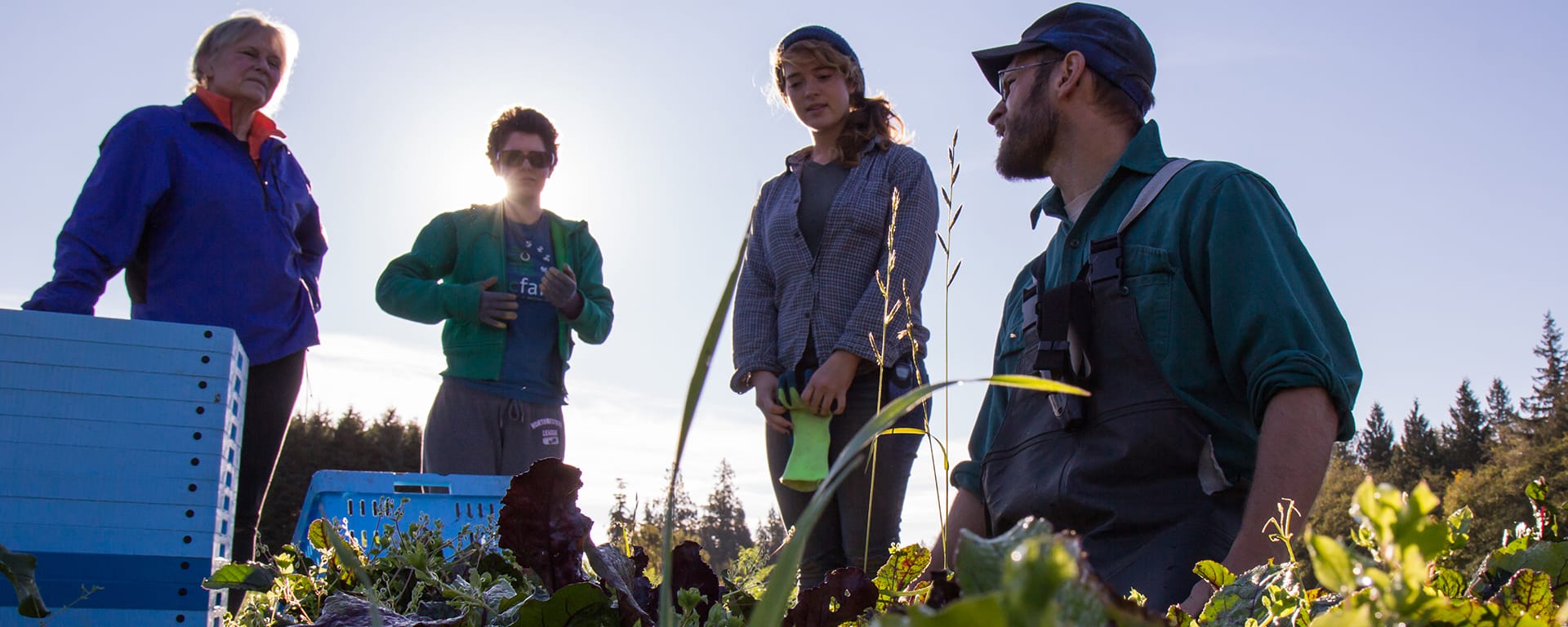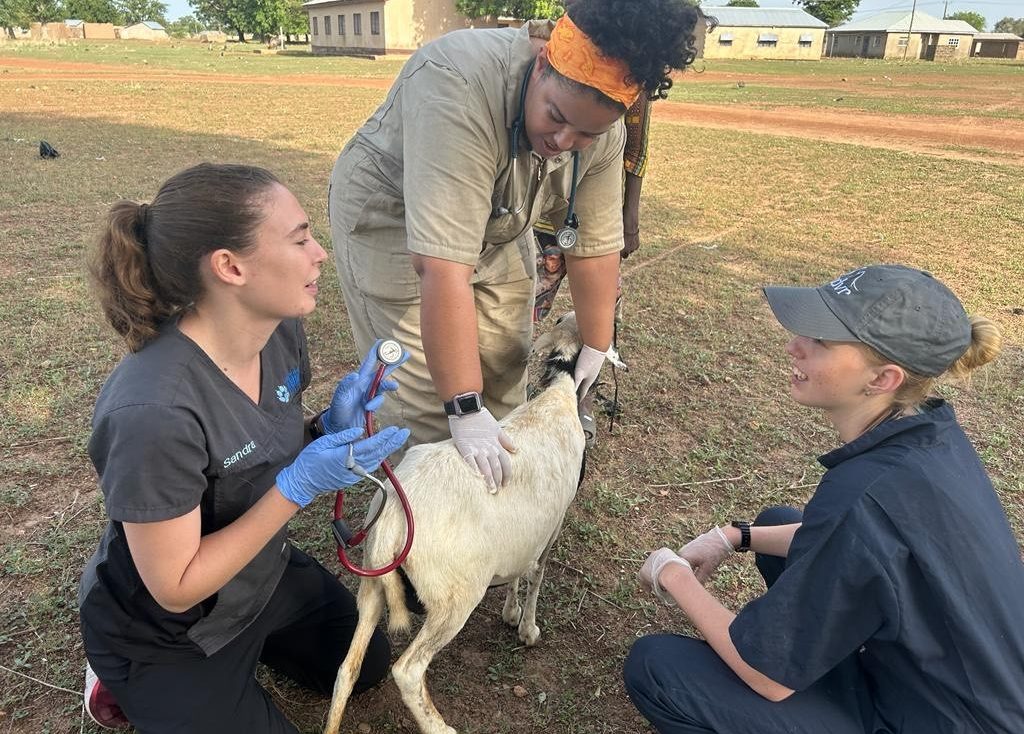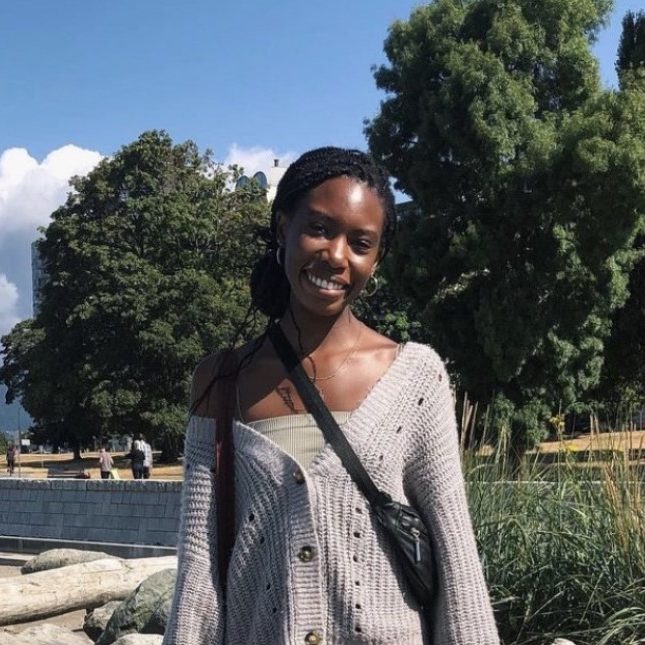 />
/>
FOOD AND ENVIRONMENT
Food is a central part of life. It nourishes us, connects us to the land, and draws us together. When you study Food and Environment at UBC, you’ll learn how to produce healthy food and develop thriving, engaged communities while still managing the environment responsibly. Practical hands-on experience at UBC Farm and in the field, as well as collaboration and interaction with faculty and community professionals, gets you ready to contribute your expertise and vision through an ever-evolving and rewarding career.
What You Need to Know
*Please note, the Food and Environment major has been renamed the Sustainable Agriculture and Environment major. The information below is for current Food and Environment students only.*
In the Food and Environment (FENV) major, you’ll have the flexibility to target your learning experiences in the direction(s) you most desire: integrated agro-ecosystem management; conservation of wildlife habitat and biodiversity as it relates to agriculture; resource economics; or an area of study you choose for yourself. FENV is strongly connected to the Centre for Sustainable Food Systems at UBC Farm, putting you in touch with our living lab on campus for maximum experiential learning. You’ll also have opportunities to expand your learning through hands-on experiences during an intensive practicum — all of which contribute to your career readiness after graduation.
UBC’s Food and Environment program is where you’ll learn how all systems of living things interconnect, and how it all ties into land and food systems. You’ll learn how to apply this knowledge in driving behaviour change in other humans to foster more sustainable and environmentally responsible actions — particularly where it relates to food production. From running a rooftop garden to diversifying habitat in order to promote bee populations, FENV keeps its eye on how we can continue to feed a growing population while maintaining environmental health. This program brings together ecology, agricultural sciences and environmental thought as the backdrop to issues around how we use our land and water to produce food, as well as other agricultural products and ecological services.
In completing your Food and Environment degree, you will take a combination of degree requirements (required of all students) and restricted electives (courses selected from a curated list of approved electives). You’ll fine-tune your degree with some unrestricted electives (courses you get to pick yourself).
Food and Environment students need a strong foundation in the sciences, so you’ll take first-year chemistry and biology before moving on to courses that are more specific to your area of study. A snapshot of the learning you can look forward to in this program includes:
- CONS 210: Visualizing Climate Change
- APBI 361: Key Indicators of Agroecosystem Sustainability
- APBI 419: Fish Diseases
- APBI 414: Animals and Global Issues
- APBI 428: Integrated Pest Management
To see the complete list of required courses for this program, please consult the UBC Academic Calendar. Current students, please use the ‘Degree Navigator’ tool in your Student Service Centre (SSC) to track your progress.
Minors
You may choose to supplement your Food and Environment major with a minor program, which involves taking courses in a subject area outside of your specialization. As an APBI student, you’re eligible to apply for a Minor in Arts, a Minor in Commerce, a Minor in Fermentations or a Minor in Science. Learn more about minors, including application timelines, here.
Dual Degree with Master of Management
If you are interested in complementing your LFS degree with a strong foundation in management, consider applying for the Bachelor of Science (Applied Biology) – Master of Management Dual Degree. Please note: admission to this program is primarily available to students coming directly out of high school. Depending on enrolment, the UBC Sauder School of Business may release a limited number of spaces on a competitive basis to students who are going into their third year at UBC (or those who are transferring to UBC for their third year). For more details about this dual-degree program option and for information about how to apply, please see the Faculty of Commerce and Business Administration section of the UBC Academic Calendar.
As noted above, the Food and Environment major has been renamed the Sustainable Agriculture and Environment Major and will no longer be accepting new students under this name. However, if you are a current APBI student and started with LFS prior to the 2018 Winter Session, you will be prompted to select your specialization through your Student Service Centre (SSC) when registering for second year and may still select this major. This major is not competitive.
If you are a high school, college or university student and you want to major in Food and Environment at UBC, please review the exciting Sustainable Agriculture and Environment major for information and application instructions.
Where Can a Food and Environment Major Take You?
Graduates of the Food and Environment program at UBC have gone on to careers in:
- sustainable agricultural systems management;
- organic farm management;
- environmental farm planning;
- government agricultural extension services; and
- vegetable crop management.
Get a head start on your career-related work experience while you’re at UBC. Check out our job board for postings that relate to your field of study!
Got Questions?
If you are a prospective or current student with questions about planning for or choosing this major, or if you have questions about how your transfer credits apply, get in touch! One of our academic advisors in LFS Student Services will be glad to help you.
If you are already in the Food and Environment major and have specific questions about restricted electives and Directed Studies, please contact your program advisor, Dan Naidu.
Meet Our Community

Erin Ryan
Applied Animal Biology
Meet Erin Ryan, an APBI alumna who works in urban wildlife welfare.

Marley Blok is an alumna of the Applied Biology program and currently volunteers with Veterinarians Without Borders in their Volunteers Engaged in Gender-Responsive Technical Solutions Program, or VETS for short. Working with local Ghanaian organizations, Blok's goal is to create sustainable socioeconomic change in rural communities through improving health in animal production systems.

Meet Jennifer Appiah, our student spotlight! Jennifer is a 2022 recipient of the Freybe Award in Nutrition and Dietetics and is currently completing her first year as part of UBC’s Master of Nutrition and Dietetics’ first ever cohort.